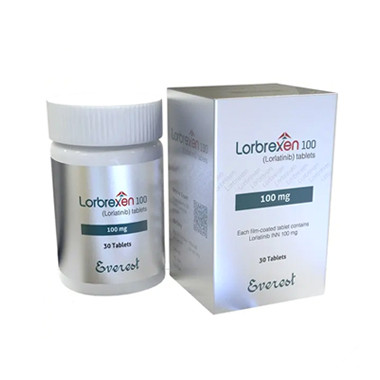Lorlatinib belongs to a class of drugs called tyrosine kinase inhibitors (TKIs) that work by blocking the action of specific proteins involved in cancer cell growth and survival. It specifically targets tumors with alterations in certain genes, such as ALK (anaplastic lymphoma kinase) and ROS1 (ROS proto-oncogene 1).
One of the groundbreaking aspects of Lorlatinib is its ability to penetrate the blood-brain barrier, a protective barrier in the brain that prevents many drugs from reaching their target. This unique characteristic of Lorlatinib makes it an effective treatment option for patients with central nervous system (CNS) metastases, a common complication in advanced lung cancer cases. It has shown excellent intracranial activity, leading to a significant reduction in tumors in the brain.
Clinical trials have shown promising results for Lorlatinib in patients who have previously received other ALK inhibitors and have developed resistance to them. This drug has demonstrated superior efficacy in the management of ALK-positive NSCLC compared to its predecessors, such as crizotinib and ceritinib. In fact, Lorlatinib has been granted accelerated approval by the U.S. Food and Drug Administration (FDA) for the treatment of ALK-positive NSCLC in patients who have received at least one prior ALK inhibitor therapy.
The safety profile of Lorlatinib has also been favorable, with manageable side effects. Common side effects observed in clinical trials include fatigue, edema, weight gain, cognitive effects, and elevated cholesterol levels. However, these side effects were generally mild to moderate in severity and can be effectively managed with supportive care or dose adjustments.
The advent of Lorlatinib has brought hope to lung cancer patients, especially those with advanced or metastatic disease. For these patients, whose treatment options were once limited, Lorlatinib provides a ray of hope. It offers a therapeutic option with proven efficacy in ALK-positive NSCLC, even in cases of resistance to other targeted therapies. Moreover, its ability to penetrate the blood-brain barrier makes it an attractive option for patients with CNS metastases.
While Lorlatinib has undoubtedly revolutionized the treatment landscape for ALK-positive NSCLC, there is still ongoing research to explore its potential in other genetic alterations and combination therapies. The development of newer and more effective treatments for lung cancer remains an active area of research, driven by the pressing need to improve patient outcomes.
In conclusion, Lorlatinib has emerged as a game-changer in the treatment of lung cancer, particularly in patients with advanced or metastatic disease. With its ability to target specific genetic alterations and overcome resistance, it offers new hope in what was once a grim scenario. As we continue to unravel the complexities of lung cancer, the advent of drugs like Lorlatinib brings us closer to a brighter future for lung cancer patients worldwide.











